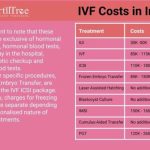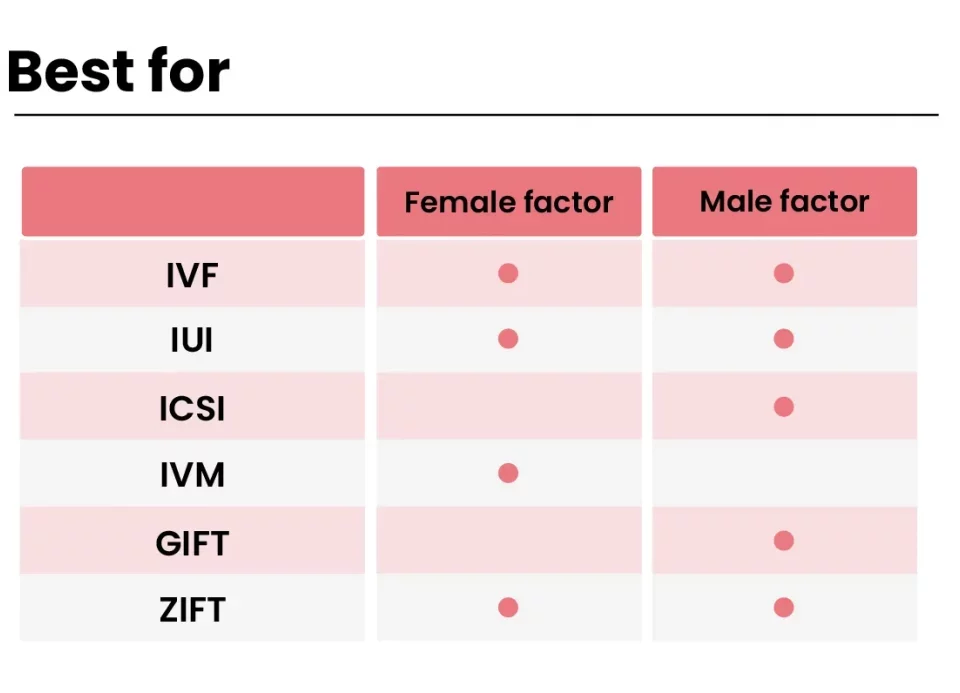
What Happens to Your Body After Failed IVF
April 6, 2025
How Much Is IVF Without Insurance? A Deep Dive Into Costs, Options, and What You Need to Know
April 6, 2025How Much Does IVF Cost with Aetna Insurance?

How Much Does IVF Cost with Aetna Insurance?
In vitro fertilization (IVF) can feel like a rollercoaster—emotionally, physically, and financially. If you’re exploring this path to parenthood with Aetna insurance, you’re probably wondering: How much is this going to cost me? You’re not alone. Millions of people turn to IVF each year, and with Aetna covering nearly 19 million folks through commercial plans, it’s a big question on many minds. The good news? Aetna offers some coverage options that can lighten the load. The tricky part? It’s not a one-size-fits-all answer. Costs depend on your specific plan, where you live, and what treatments you need. Let’s dive in and break it all down so you can plan with confidence.
What Is IVF, and Why Does It Matter?
IVF is a fertility treatment where doctors combine an egg and sperm in a lab, then transfer the resulting embryo into the uterus. It’s a lifeline for people facing infertility—about 10-15% of couples in the U.S.—and for others, like same-sex couples or single folks building families. But it’s not cheap. A single cycle can run anywhere from $12,000 to $25,000 without insurance, and many people need more than one try. That’s where Aetna steps in, offering coverage that can make this dream more reachable.
Why does this matter to you? Because understanding your insurance can save you thousands and reduce stress. Aetna’s plans vary widely—some cover diagnostics only, while others include treatments like IVF. Knowing what you’re working with is the first step to making smart choices.
How Aetna Covers IVF: The Basics
Aetna doesn’t have a universal IVF policy. Your coverage depends on your specific plan, often tied to your employer or the state you live in. Here’s what you need to know to get started:
- Not all plans cover IVF. Some Aetna plans stick to basics like fertility testing (blood work, semen analysis), while others include treatments like intrauterine insemination (IUI) or IVF.
- Precertification is key. Before starting IVF, your doctor usually needs to get approval from Aetna’s National Infertility Unit (NIU). Call 1-800-575-5999 or check with your provider to confirm.
- State laws make a difference. If you live in one of the 21 states with fertility coverage mandates (like New York or Illinois), your Aetna plan might offer more benefits than in non-mandate states like Florida.
So, how do you find out? Grab your insurance card and call Member Services (the number’s on the back). They’ll tell you what’s covered, any lifetime maximums (like $25,000 for medical costs), and if you need to use in-network providers. It’s a quick call that can save you headaches later.
Breaking Down the Costs of IVF with Aetna
Let’s get to the nitty-gritty: the numbers. IVF costs fall into a few buckets—base fees, medications, and extras. Here’s how Aetna might offset those, based on typical plans and real-world examples.
Base IVF Fees
The core process—monitoring, egg retrieval, lab work, and embryo transfer—averages $9,000 to $14,000 per cycle without insurance. With Aetna:
- In-network coverage: Many plans cover 80-90% of these costs after you hit your deductible (say, $1,000-$3,000). So, you might pay $1,800-$2,800 out of pocket per cycle.
- Out-of-network: Coverage drops to 60-70%, bumping your share to $4,200-$5,600.
Medications
Fertility drugs (think hormones to boost egg production) range from $3,000 to $7,000 per cycle. Aetna often covers these under your prescription plan, but:
- Copays apply: You might pay $50-$200 per drug, totaling $500-$1,000.
- Not covered? Full price hits hard—up to $7,000.
Extra Procedures
Things like genetic testing (PGD) or embryo freezing add $1,000-$5,000. Aetna may cover these if deemed “medically necessary” (e.g., preserving fertility before cancer treatment), but it’s case-by-case.
Sample Cost Breakdown
Here’s a quick look at a typical cycle with an Aetna plan covering 90% after a $2,000 deductible:
| Item | Total Cost | Aetna Pays | You Pay |
|---|---|---|---|
| Base IVF Fee | $12,000 | $9,000 | $3,000 |
| Medications | $5,000 | $4,000 | $1,000 |
| Embryo Freezing | $2,000 | $1,800 | $200 |
| Total | $19,000 | $14,800 | $4,200 |
Note: Assumes in-network providers and precertification.
Your out-of-pocket could be $4,000-$6,000 per cycle with decent coverage—way less than the $20,000+ without insurance. But if your plan has a lifetime max (say, $25,000), you’ll need to track how much Aetna’s paid out.

What’s New with Aetna in 2025?
Aetna’s been making waves in fertility care, and as of April 2025, here’s what’s fresh:
- IUI as a standard benefit: Since September 2024, Aetna covers intrauterine insemination (IUI) for eligible plans without needing an infertility diagnosis. This costs $500-$1,000 per cycle and can be a cheaper first step before IVF.
- LGBTQ+ inclusivity: After a 2024 settlement, Aetna updated policies to ensure equal access to IVF and IUI, regardless of sexual orientation or partner status. No more jumping through extra hoops!
- Fertility preservation boost: More plans now cover egg or embryo freezing if you’re facing treatments like chemo that could harm fertility.
These changes mean broader access and potentially lower costs. Curious how they apply to you? Ask Member Services if your plan’s rolled into these updates.

Hidden Costs Aetna Might Not Cover
Even with insurance, IVF can sneak up on you with extra expenses. Here are some curveballs to watch for:
- Travel: If your in-network clinic’s far (like driving from Melbourne to Miami), gas, lodging, and time off work add up—maybe $500-$1,000 per cycle.
- Donor eggs or sperm: Need a donor? That’s $5,000-$15,000, often not covered unless your plan explicitly says so.
- Surrogacy: Aetna might cover your IVF cycle, but the surrogate’s medical bills? That’s on you—think $20,000+.
Real-Life Example
Take Brenna from Florida. Her Aetna plan covered IVF, but she paid $2,700 in deductibles, $500 for out-of-network labs, and $1,000 in travel for three trips to Miami. Total: $4,200 beyond what she expected. Planning ahead—like finding closer providers—could’ve shaved off hundreds.
How to Maximize Your Aetna Coverage
Want to keep costs down? Here are practical tips to stretch your benefits:
✔️ Stay in-network. Aetna’s DocFind tool (on aetna.com) lists fertility specialists. In-network care slashes your share by 20-30%.
✔️ Get precertification early. Your doctor handles this, but double-check with the NIU to avoid denials.
✔️ Ask about lifetime maximums. If your plan caps at $25,000, pace your treatments to stay under it.
✔️ Explore IUI first. At $500-$1,000 a pop, it’s cheaper than IVF and now covered by many plans.
❌ Don’t assume everything’s covered. Donor costs or experimental treatments (like certain genetic tests) often aren’t.
Step-by-Step: Starting IVF with Aetna
- Call Member Services. Confirm IVF coverage, deductibles, and copays.
- Find a provider. Use DocFind or ask your OB-GYN for referrals.
- Meet your doctor. Discuss your plan and get precertification rolling.
- Track costs. Keep receipts—Aetna might reimburse later if claims shift.
Interactive Quiz: What’s Your IVF Cost Profile?
Wondering how your situation stacks up? Take this quick quiz (circle your answers):
- Does your Aetna plan cover IVF?
A) Yes B) No C) Not sure - Are you using in-network providers?
A) Yes B) No - How many cycles do you expect to need?
A) 1 B) 2-3 C) 4+ - Do you need extras like donor eggs or freezing?
A) Yes B) No
Results:
- Mostly A’s: You’re set for $3,000-$6,000 per cycle.
- Mix of A’s/B’s: Expect $6,000-$10,000 with some gaps.
- Mostly B’s/C’s: Could hit $15,000+—time to dig into your plan!
State Laws and Aetna: A Game Changer?
Where you live can flip the script on IVF costs. As of 2025, 21 states mandate some fertility coverage, and Aetna adjusts plans accordingly. Here’s a peek:
- New York: Full IVF coverage after 12 months of trying (or 6 IUI cycles for LGBTQ+ folks). Out-of-pocket might drop to $2,000-$4,000.
- Texas: No mandate—coverage depends on your employer. You could pay $10,000+ without luck.
- California: Diagnostics covered, but IVF’s optional. Check your plan!
Living in a mandate state? You’re more likely to get robust benefits. Non-mandate state? Push your employer to opt in—Aetna offers it, but they have to say yes.
The Emotional and Financial Balancing Act
IVF isn’t just about money—it’s a mental marathon. Studies show 40% of infertility patients experience anxiety or depression. Adding financial stress? That’s a double whammy. Here’s how to cope:
- Budget smart. Set aside $5,000-$10,000 per cycle as a cushion.
- Lean on support. Aetna’s Enhanced Maternity Program offers free nurse guidance—call 1-800-272-3531.
- Take breaks. If costs climb, pause and reassess—your health matters too.
Mini Case Study: Sarah’s Journey
Sarah, a 32-year-old teacher in Illinois, used Aetna for two IVF cycles. Her plan covered 80% after a $1,500 deductible. She paid $4,800 total, thanks to in-network care and state mandates. Without coverage, it’d have been $30,000. Her tip? “Talk to everyone—insurance, doctors, even friends. Knowledge is power.”
Unique Angle: IVF Success Rates and Cost Efficiency
Here’s something you won’t find in most articles: linking costs to outcomes. The CDC says IVF success rates hover at 50% per cycle for women under 35, dropping to 20% by age 40. With Aetna, you might pay $4,000-$6,000 per try. Let’s crunch it:
- Under 35: 50% chance = $8,000-$12,000 for a baby (2 cycles average).
- Over 40: 20% chance = $20,000-$30,000 (5 cycles average).
Investing in a top clinic (check SART.org for stats) could save you cycles—and cash. Aetna’s Institutes of Excellence network highlights high performers. Worth a look?
Poll: What’s Your Biggest IVF Worry?
We want to hear from you! Vote below and see what others think:
- A) Cost
- B) Success rates
- C) Emotional toll
- D) Insurance hassles
(Comment your pick below—we’ll tally results next month!)
Untapped Topic 1: Fertility Preservation Costs with Aetna
Egg or embryo freezing is booming—up 20% since 2020, per ASRM data. Aetna covers it if it’s “medically necessary” (e.g., before cancer treatment), costing $5,000-$10,000 upfront, plus $500-$1,000 yearly storage. But elective freezing? Often out-of-pocket. Here’s the twist: some plans now include it under 2025 updates. Call Aetna to see if you qualify—it’s a game-changer for future planning.
Untapped Topic 2: Aetna’s Role in Workplace Benefits
Did you know 65% of big employers (500+ workers) offer fertility benefits, per Mercer? Aetna’s a top player here. If your job offers it, you might get IVF at 90% coverage, no lifetime cap. Smaller companies? Less likely. Chat with HR—advocating for this perk could cut your costs dramatically.
Untapped Topic 3: Micro-IVF as a Low-Cost Option
Ever heard of micro-IVF? It uses fewer drugs ($1,000-$2,000 vs. $5,000) and costs $5,000-$7,000 total. Success rates are lower (20-30%), but it’s gentler and cheaper. Aetna might cover it if your doctor justifies it. Ask about it—few articles dig into this affordable twist.

Your IVF Action Plan
Ready to roll? Here’s your roadmap:
- Know your plan. Call Aetna today—don’t guess.
- Pick a winner. Find an in-network clinic with solid success rates.
- Budget beyond insurance. Save for extras like travel or donors.
- Start small. Try IUI first if it fits your case.
- Stay sane. Tap Aetna’s support programs—they’re free and fabulous.
IVF with Aetna isn’t cheap, but it’s doable. You might pay $4,000-$10,000 per cycle, far less than the uninsured $20,000+. With new perks like IUI coverage and LGBTQ+ equity, 2025’s looking brighter. Got questions? Drop them below—let’s figure this out together!

